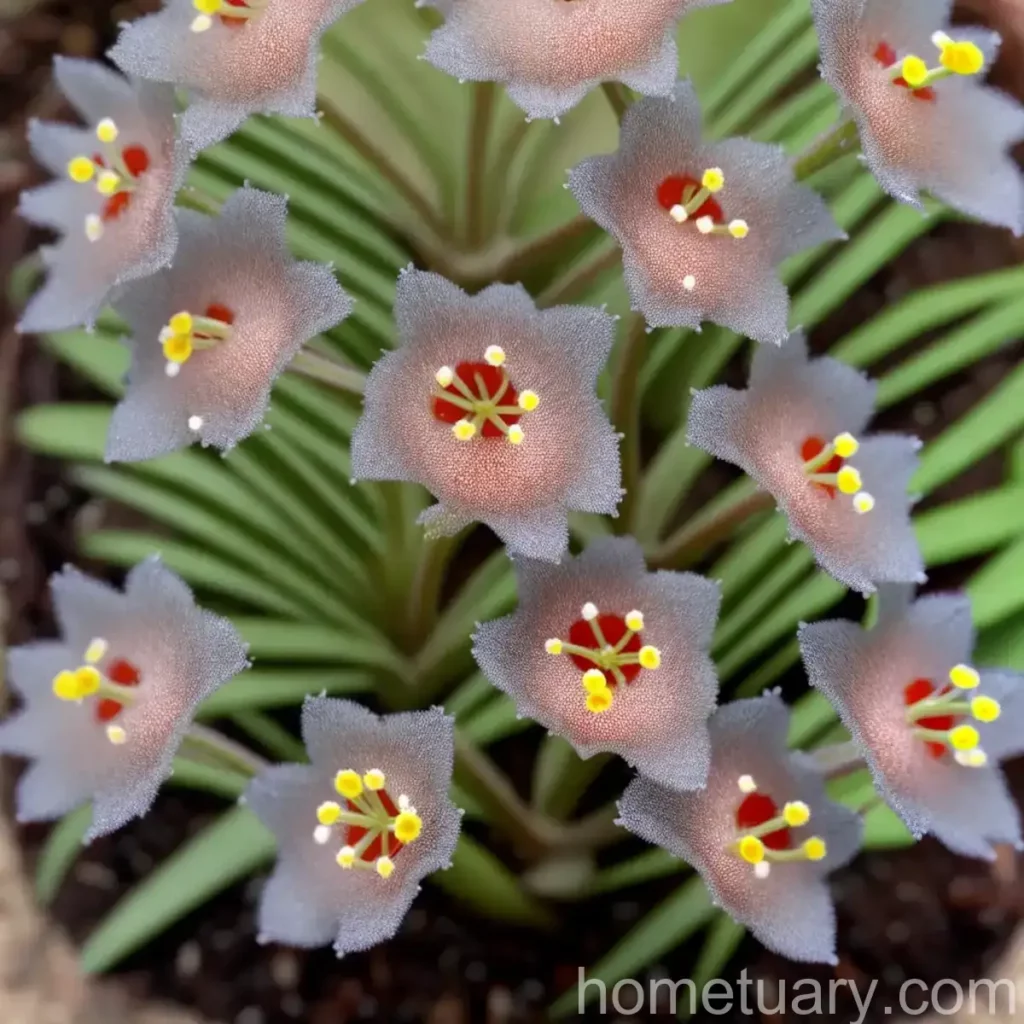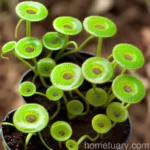Daily Dew (Drosera binata var. dichotoma): A Comprehensive Care Guide
What is Plant?
Plants are living organisms belonging to the kingdom Plantae, consisting of multicellular eukaryotes. They are characterized by their ability to carry out photosynthesis, using chlorophyll to convert light energy into chemical energy stored in the form of glucose. This primary production by plants forms the base of the food web, sustaining nearly all life on Earth. There is an incredible diversity of plant species, ranging from tiny mosses to colossal trees and from delicate flowers to robust cacti. Apart from their fundamental ecological importance, plants also provide us with food, medicine, shelter, and aesthetic beauty.
Daily Dew (Drosera binata var. dichotoma)
Daily Dew (Drosera binata var. dichotoma), also known as the dichotoma forked sundew, is an intriguing carnivorous plant species belonging to the Drosera genus. Originating from regions of New Zealand and East Australia, this plant is characterized by its unique, forked leaves and small, glistening droplets, reminiscent of morning dew, which it produces to attract, ensnare, and digest insects. This charming plant is not only a fascinating addition to botanical collections but also serves as a natural pest control agent, effectively keeping insect populations in check.
Let’s dive deeper into the care and cultivation of the Daily Dew plant, exploring its unique characteristics, requirements, propagation methods, and more.
Key Takeaways – Daily Dew (Drosera binata var. dichotoma)
- Scientific Name: Drosera binata var. dichotoma
- Common Name: Daily Dew, Dichotoma Forked Sundew
- Genus: Drosera
- Family: Droseraceae
- Native Habitat: New Zealand and East Australia
Culture
The culture of the Daily Dew plant involves understanding its preferred environmental conditions, propagation, and maintenance requirements to ensure its optimal growth and longevity. Let’s delve into the various aspects of its care.
Uses
The Daily Dew plant has several notable uses, including:
- Botanical Curiosity: Its carnivorous nature and delicate appearance make it a popular choice for botanical enthusiasts.
- Natural Pest Control: As a carnivorous plant, it helps control insect populations in its vicinity.
- Educational Purposes: It serves as an excellent educational tool to learn about carnivorous plants and their unique adaptations.
Water
The Daily Dew plant, being a carnivorous species, has specific water requirements. It thrives in a moist, well-drained environment, and maintaining the right level of moisture is crucial for its health.
- Watering Frequency: Daily Dew plants require consistently moist soil. Water regularly to keep the soil slightly damp at all times.
- Water Quality: Use distilled water, rainwater, or purified water to prevent the accumulation of salts and minerals that could harm the plant.
Sunlight
Proper exposure to sunlight is crucial for the well-being of the Daily Dew plant. It has specific preferences when it comes to light.
- Ideal Light Conditions: Place the Daily Dew plant in bright, indirect sunlight.
- Avoidance of Direct Sun: Protect the plant from direct, intense sunlight, as it can lead to leaf burn.
Fertilizer
Given its carnivorous nature, the Daily Dew plant obtains essential nutrients from the insects it captures. Therefore, it doesn’t require additional fertilization.
Soil
The type of soil used for the Daily Dew plant significantly influences its growth and overall health.
- Preferred Soil Type: Use a mix designed for carnivorous plants. It should be low in nutrients and retain moisture well, such as a blend of peat and perlite or sand.
- Acidic Soil: The soil should be acidic, with a pH level between 4 and 6.
Pruning
Pruning is typically not necessary for the Daily Dew plant. However, removing dead or decaying leaves can help maintain the plant’s overall appearance and health.
Propagation
The propagation of the Daily Dew plant can be achieved through various methods, including division and leaf cuttings.
- Division: Divide the plant by carefully separating its offshoots or rhizomes to create new plants.
- Leaf Cuttings: Propagate the plant using leaf cuttings. Place the leaves on a suitable growing medium until new plants develop.
Container Popularity
The Daily Dew plant is popularly grown in containers, allowing enthusiasts to create optimal growing conditions and control its environment.
- Container Size: Choose a container that accommodates the plant’s root system, with enough space for growth.
- Drainage: Ensure the container has adequate drainage holes to prevent waterlogging.
Common Diseases
While the Daily Dew plant is relatively resistant to diseases, it can still encounter certain issues that require attention.
- Fungal Infections: Excessive moisture can lead to fungal problems. Ensure proper ventilation and avoid overwatering to prevent fungal infections.
- Rot: Overwatering or poor drainage can result in root rot. Monitor soil moisture levels closely to avoid this issue.
Disease Diagnosis
Early detection and intervention are crucial for addressing any potential diseases affecting the Daily Dew plant.
- Symptom Recognition: Learn to recognize signs of fungal infections, rot, or other diseases to address them promptly.
- Treatment: If disease symptoms are observed, consider adjusting watering practices and, if necessary, applying suitable fungicides or treatments.
Common Pests
The Daily Dew plant, despite being a carnivorous species, can still face pest-related challenges.
- Aphids: Keep an eye out for aphids, which can infest the plant. Physically remove them or use insecticidal soap if necessary.
- Other Insects: Monitor the plant for any other insect pests that can potentially disturb its growth.
Botanist’s Tips
Here are some expert tips for cultivating and caring for the Daily Dew plant:
- Monitoring Moisture: Regularly check the soil moisture levels and adjust watering frequency as needed to maintain the ideal growing conditions.
- Avoid Overfeeding: Given its carnivorous nature, refrain from providing additional feeding, as it can lead to nutrient imbalances.
Fun Facts
- The glistening droplets on the leaves of the Daily Dew plant are mucilage, a sticky substance that serves as a trap for insects.
- Daily Dew plants are renowned for their ability to survive in nutrient-poor soils through their carnivorous adaptations.
The care and cultivation of the Daily Dew plant entail a thorough understanding of its unique characteristics and needs. By creating an environment that mimics its natural habitat and adhering to proper care practices, enthusiasts can enjoy the beauty and intrigue of this captivating carnivorous plant.
Links to External Resources
For further insights and information on the Daily Dew (Drosera binata var. dichotoma), refer to the following resources:
- International Carnivorous Plant Society: Drosera binata var. dichotoma
- Carnivorous Plant Resource: Daily Dew Plant Care
- The Carnivorous Plant FAQ: Growing Drosera binata
In conclusion, the Daily Dew plant, with its captivating carnivorous nature and delicate appearance, offers enthusiasts an intriguing addition to their botanical collections. By understanding its unique habitat requirements, propagation methods, and maintenance needs, individuals can cultivate and appreciate the captivating beauty of this remarkable plant.
By immersing oneself in the world of Daily Dew (Drosera binata var. dichotoma) and embracing the art of caring for this extraordinary species, a deep appreciation for its natural adaptations and ecological significance can blossom.
Remember to always seek reliable sources and resources for further guidance on the care and cultivation of the Daily Dew plant, ensuring a fulfilling and successful journey in nurturing this botanical gem.
Happy cultivating, and may the splendor of the Daily Dew plant enrich your botanical endeavors!















